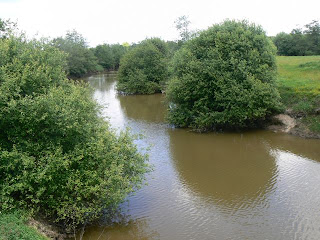Porcupine fish are almost cartoon like in their appearance. They belong to the family Diodontidae. They are closely related to pufferfishes, but possess big heavy spines on their body. They are found throughout the world in shallow temperate and tropical seas. They range in size from 7 to 50 cm depending on the species of which there are around 15.
Porcupine fish are slow and as a result are unable to escape very easily from predators. One evolutionary tactic that they have up their sleeve is the ability to blow up their body by gulping in water to their gut. In larger species the spines then become erect whereas small species always have erect spines. They can double their size, and it helps to avoid been eaten since they are then hard to swallow (with the added help of been covered in spines). Here is a good example of how such a tactic works.
If this wasn't enough some species are also poisonous, with the neurotoxin been produced in their organs such as the liver. The tetrodotoxin is 1200 times more potent than cyanide!!! Interestingly, this poisen is likely to be produced by bacteria which are taken in through the animals diet. Evidence for this comes from the fact that porcupine fish in captivity are not poisonous. Despite all these defense mechanisms sometimes they do fall prey to sharks or orcas.
Despite been slow these fish are highly manouverable as is evident when watching them feed. Many come out at night searching for their favourite prey.....mollusks. To our eyes the prey may not be obvious but the porcupine fish will detect their prey, position themselves over the sandy spot, and blow water over the sand exposing their dinner. It could be that porcupine fish detect water jets of their prey that are produced as they breathe out water and this is why they are able to detect them from under the sand.
Porcupine fish have a mouth that in appearance resembles a beak, which is actually made up of fused teeth. This set up is ideal for crushing up the shells of mollusks.
























